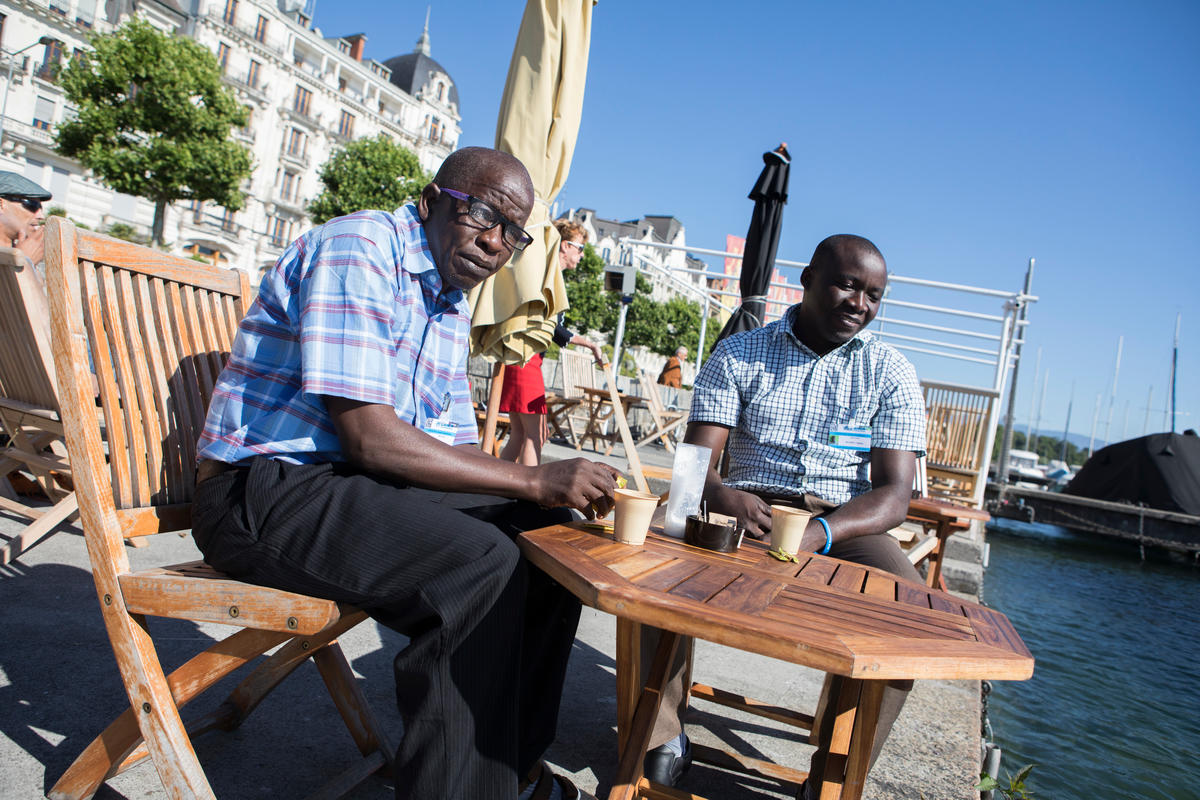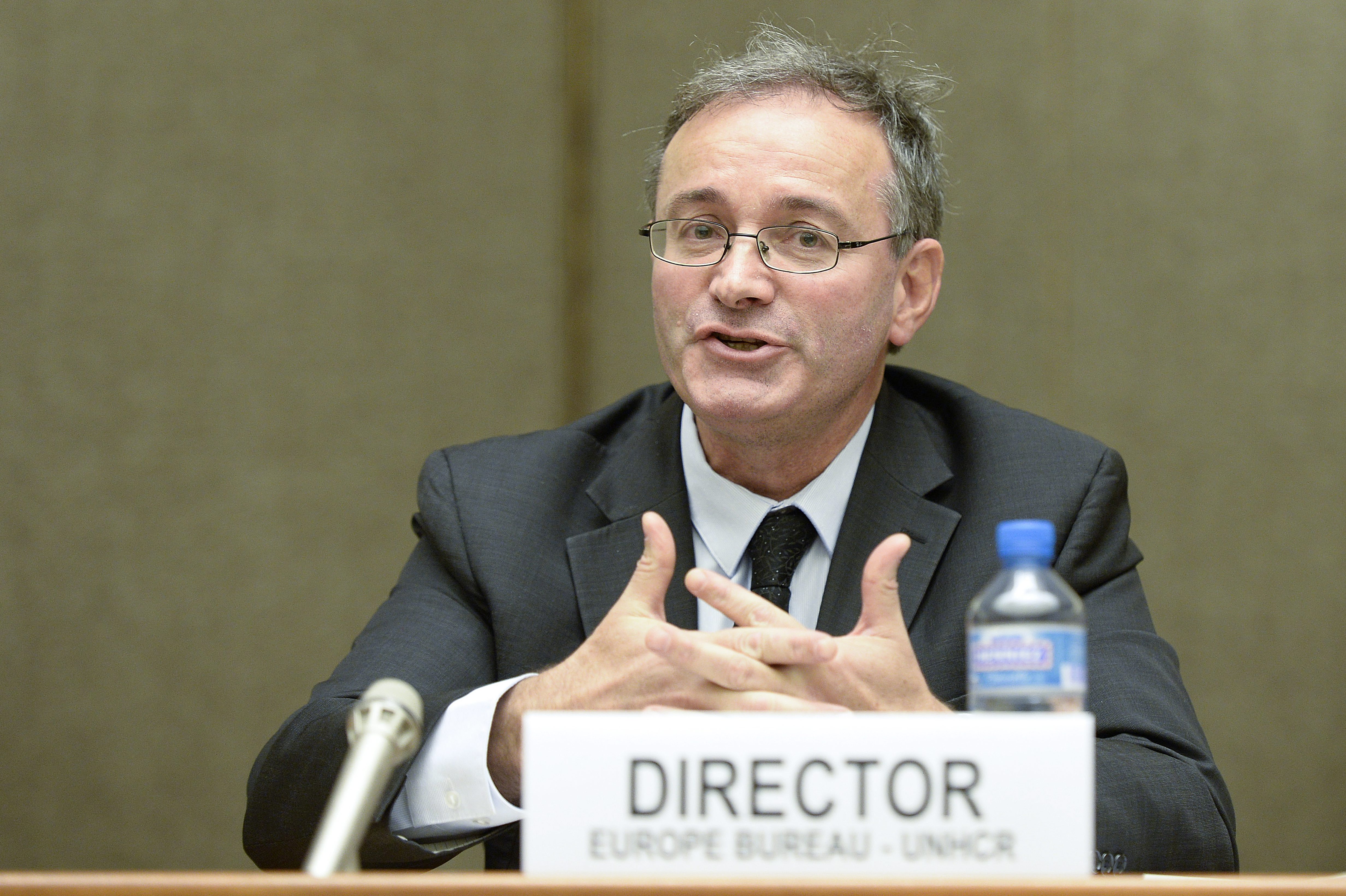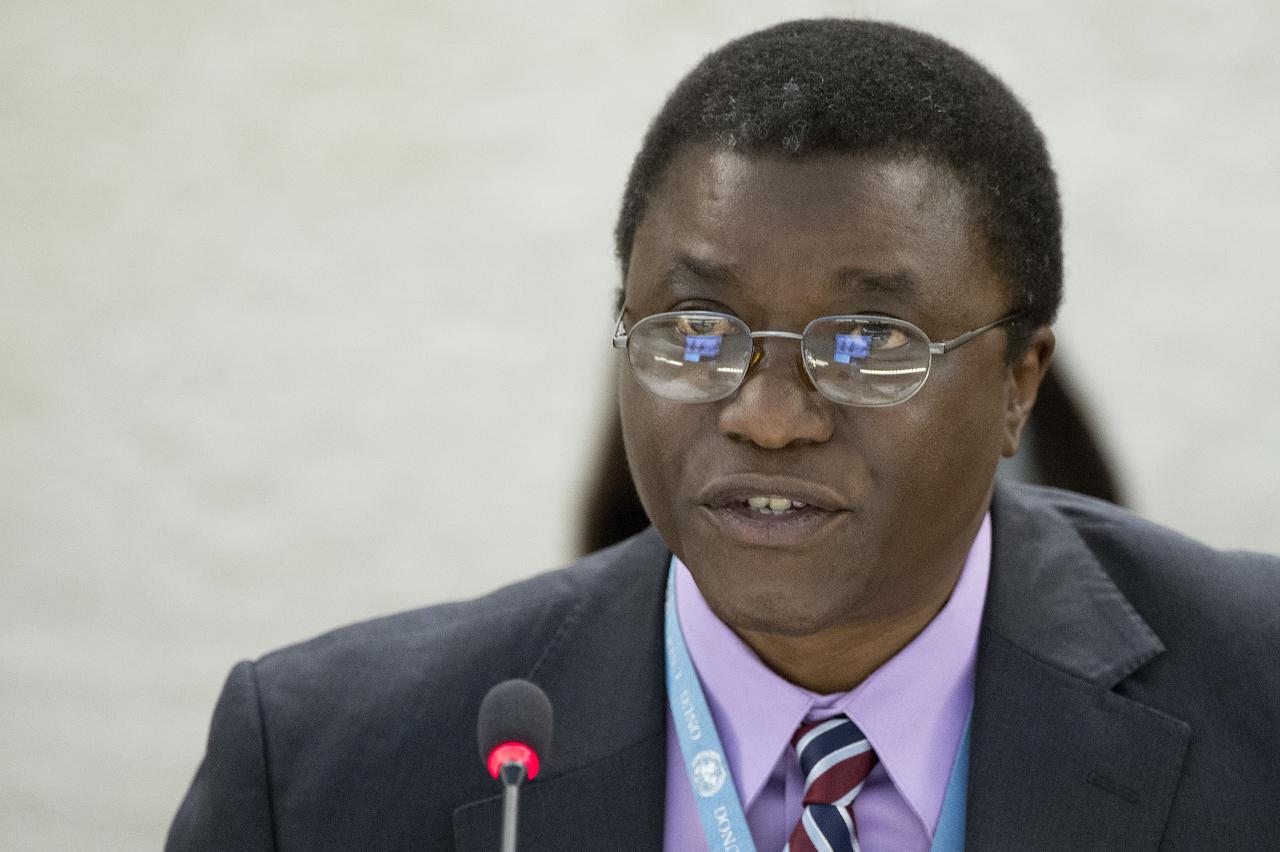Q&A: A day in the life of our man in Baghdad
Q&A: A day in the life of our man in Baghdad

GENEVA, July 4 (UNHCR) - Daniel Endres flew to Baghdad in March to take up his demanding new post as UNHCR's representative in Iraq, managing a team of around 100 staff - most of them in Iraq. The Swiss national has spent most of his UNHCR career in the field, starting as associate protection officer in Peshawar and then Quetta. He next headed the refugee agency's office in Poland followed by Aden, Yemen. After serving with emergency teams in the North Caucasus, the Great Lakes region, Albania and West Africa, Endres was deputy chief of mission in Afghanistan from 2001-2005. Before leaving for Iraq, he headed UNHCR's Emergency and Security Service in Geneva. He spoke with Reports Officer Shaden Khallaf. Excerpts from the interview:
How does the Iraq crisis compare with other emergencies you have worked on?
If I look at Sierra Leone and Afghanistan, both countries were ravaged by civil war but managed to find a way forward, supported and guided by the international community. I think that element, the framework which was established for Sierra Leone and Afghanistan by the UN, is missing in Iraq. It's still an agenda driven by the multinational forces led by the US and, increasingly, the national government.... The UN contributes and supports, but is not really leading the process. That is the first marked difference.
On the similarities, there is large displacement and great difficulty in reaching a common view for the whole country. There are still forces that tend to divide Iraq, but there is also a growing realization that disintegration will make things worse for everyone and that national reconciliation is the best way forward.
Another major difference from other emergencies is the way we work with the security forces. The closeness to the multinational forces is something that we have never experienced in any operation before.... It may be the only way forward at this stage, but it is something which the UN has difficulties with. It's not only a doctrinal issue, it's also a matter of how you are perceived by Iraqis and the rest of the world.
Do you see any other way for the UN to work in Iraq?
Eventually there will be a need for another way because the multinational forces are reducing their capacity and will not be able to provide the same level of security for the UN. So we will have to find a way of moving around without multinational forces in the future. I think, in a way, that that is a positive constraint because many actors [including embassies and NGOs] have found a way to move around without multinational forces.
What can the UN can do to help build government capacity?
I'm not sure that capacity-building in the traditional sense is what is needed at this stage. In Iraq there is capacity in abundance, so it's more a matter of how we can harmonize systems and find a common way forward.... From the point of view of technical capacity-building [such as financial management of a ministry], maybe the UN is not the strongest actor in Iraq right now. But surely the UN will have a strong role in many politically charged questions and policies on displacement for which it is seen as an independent, neutral and capable actor.
Tell us about your day-to-day routine in Baghdad
I have to spend time in four locations: Baghdad; Amman, where the UN country team sits; Kuwait, where much of the south for us is managed; and Erbil in the north. So far, I have spent about 70 percent of the time in Baghdad, 20 percent in Amman and 10 percent in Erbil and Kuwait.
In Baghdad, the most defining feature is of course the security. We live in containers in a well protected camp [in the Green Zone]. The containers have a steel ceiling, sandbags on top, and another ceiling. These should be able to absorb the impact of a rocket and protect the people inside. Similar measures have been implemented to protect the UNAMI [UN Assistance Mission for Iraq] building, which is located in a former school and where we work.
I get up at 7:30 or so and have breakfast at eight in the dining facility, or DFAC as it's commonly known. The food, prepared by Pakistani crews, is good. Because I've lived in Pakistan before, they sometimes share some of their own food with me. The cafeteria serves international type food and everything is frozen. Nothing comes fresh from the market, which is a pity.
I get a lift to the office, with my deputy Niyazi Muharramov or others. It takes about 15 minutes to get to the office. We are checked on departure and on arrival at the compound, where there are two checkpoints. One is manned by Georgian soldiers who make a thorough check of your identity and vehicle. Security inside the building is provided by Fijians.
Meeting the national staff in the office is the most rewarding part of my day, because you always learn something. They update us on what has happened and then we plan the day - there are internal meetings, external meetings with government officials, diplomats and NGO reps. In the Green Zone, we have easy access to ministers and deputy ministers and meet them regularly to discuss policy and operational issues.
At lunch in the UN compound, you sit with everyone from the SRSG [UN Special Representative for Iraq Staffan de Mistura] to the soldiers and guards. It's good because you also meet colleagues from UNAMI - the political people, the elections people, the public information people.
Living so closely together is a bit like living on a university campus. You easily form bonds. In the evening, normally towards seven or eight, we go back to the compound because everything is defined by fixed meal times, otherwise you miss your dinner. After dinner, there are few social activities possible. There's a gym, so I use that if I'm not too tired. Some colleagues play ping pong, but I'm unfortunately lousy. Twice a week the bar is open.
Have you ever ventured outside the Green Zone?
Only once, when I went to present my credentials to the Minister of Foreign Affairs [Hoshyar Zebari]. I was sitting in a Humvee. It looked like we were going into combat and they blocked the roads for our convoy. I did not feel good about it as we were getting a lot of angry looks from Iraqi men walking in the street. We appreciate the strong security, but I hope in the long run we find a way [to get around] more suited to a humanitarian agency.
How does your family feel about you being in Iraq?
My first thought was, how do I explain this to my mother. I remember once she said, "Do anything, but please don't go to Iraq." And I said, "Of course not." Anyhow, I told them I would be going on a long mission, maybe several months, and now I've explained it's probably going to be a year. But I think my mother and my brothers and sisters understand, because I have lived in Afghanistan and many other [dangerous] places
What is UNHCR able to do currently in Iraq?
When heading for Iraq, I knew that there was a lot of scepticism about what we are actually doing in Iraq. Even delivery of protection has been questioned and so my first endeavour was to talk about our programme with colleagues, especially the national staff.... Together we have developed a system that includes three layers of monitoring and verification of all projects by national staff, and an independent impact assessment. Now we are in a much better position to explain what's actually going on and what we are doing.
With regards to the projects themselves.... There are 1.8 million recent internally displaced [people in Iraq] and at least a third are extremely vulnerable and need emergency assistance. Then there are 42,000 refugees and many of them also live in precarious conditions. So, there is a need for emergency type interventions and that's provided through non-food item packages, including a tent, blankets, plastic sheets, jerry cans and so on. They have been given to 300,000 individuals - quite a substantial intervention.
Emergency shelter interventions are another important component of our programme, because many people have had their houses damaged or are staying with host families who don't have enough living space. We plan to help improve shelter for at least 10,000 families, that's 50,000 to 60,000 people.
We also provide stabilization intervention for displaced people living in host villages mainly. In such situations, the extra population puts strain on the water resources, the schools, the health facilities. We conduct community-based interventions in such villages with our partners, including local representatives of the Ministry of Displacement. They sit down with the villagers and decide where the needs are most urgent.... This approach is key to stabilize internal displacement.
We also do important protection work in protection and assistance centres. One of the key activities of these centres is to help people obtain the papers necessary for access to public services and government assistance. The protection and assistance centres also conduct needs assessment as well as monitoring of internally displaced people and of returnees.









